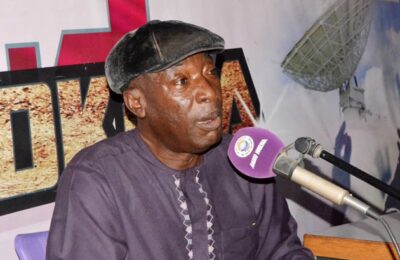The iron and steel industry occupies a central position in the economic development of any industrialized nation. In Nigeria, while the full potential of this sector remains untapped, its strategic importance to both macroeconomic and microeconomic growth cannot be overstated.
At the macroeconomic level, the development of the iron and steel sector is crucial for driving industrialization. It serves as the backbone of infrastructure, construction, transportation, manufacturing, and energy development. A robust, locally-driven steel industry reduces import dependency, conserves foreign exchange, and enhances national productivity. By boosting GDP and supporting economic diversification, especially away from over-reliance on oil, steel can catalyze Nigeria’s transition to a more resilient and inclusive economy.
Nigeria is endowed with abundant raw materials—iron ore, coal, and limestone—essential for steel production. Effective policy implementation and investment in local beneficiation can unlock value across the supply chain, from mining to manufacturing and export. This would also encourage foreign direct investment (FDI) and foster public-private partnerships, positioning Nigeria to take advantage of opportunities under the African Continental Free Trade Area (AfCFTA).
On the microeconomic front, the impact of a developed iron and steel industry is equally significant. The sector has the capacity to generate thousands of jobs in mining, processing, logistics, and fabrication. Small and medium enterprises (SMEs) that depend on affordable raw materials such as those producing tools, machinery parts, and construction components would thrive, contributing to poverty reduction and increased economic activity at the grassroots level.
The multiplier effect extends to critical industries including agriculture (with locally made farm implements), housing (steel for construction), and transportation (rail and vehicle components). Furthermore, local artisans, welders, fabricators, and mechanics would benefit from easier access to inputs, improving their productivity and profit margins.
To truly unlock the potential of this sector, The Federal Ministry of Steel Development under Prince Shaibu Abubakar Audu the Minister is undergoing urgent rehabilitation of the Ajaokuta Steel Complex and the National Iron Ore Mining Company (NIOMCO).
When fully operational, these facilities can serve as game changers for Nigeria’s industrial landscape.
Achieving this vision requires a consistent and investor friendly regulatory environment, including tax incentives, protection against unfair imports (dumping), and clear industrial policies. Infrastructure improvements particularly reliable electricity, roads, and rail systems must support production and distribution.
Additionally, technical institutions and research centers need to be strengthened to produce a skilled workforce and foster innovation.
The iron and steel industry is not just another economic sector; it is the bedrock of national development and industrial empowerment. With the continued focused attention from President Bola Ahmed Tinubu’s administration, Nigeria can fast-track its journey toward becoming an African industrial giant, ushering in prosperity not just at the national level, but also for millions of Nigerians at the grassroots.
– Musa Asiru Bakare, a member of the Tinubu Support Group, writes from Lokoja, the Kogi state capital.




